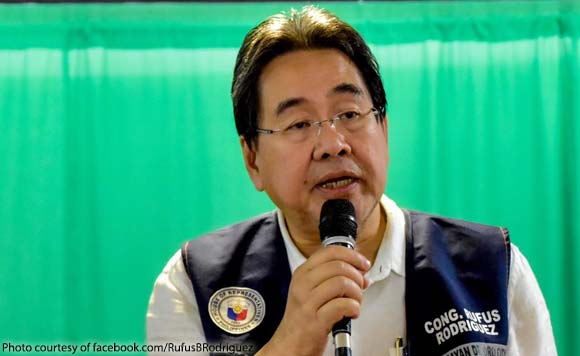Introduzione
Calls have emerged to eliminate the travel tax imposed on economy class airline passengers, reflecting a shift towards a more accessible travel experience for all. This article delves into this ongoing advocacy and its implications for travelers.
The Proposal to Remove the Travel Tax
Representative Rufus Rodriguez from Cagayan de Oro City has made a compelling argument urging lawmakers to abolish the travel tax on economy class passengers, suggesting that such taxes place an unnecessary burden on those least able to afford it.
Rodriguez emphasized that the tax should be reserved for passengers traveling in business and first class, with proposed rates of P3,000 and P5,000, respectively. He invited the chamber to embrace this perspective as a move towards fairness, enabling more Filipinos to travel without the added financial strain.
In his privilege speech, he highlighted the plight of ordinary Filipinos, many of whom struggle with the costs of international travel. Families saving up for a vacation feel the travel tax as a significant hurdle, ultimately discouraging their aspirations to explore abroad.
The Burden of Travel Tax on Ordinary Filipinos
Rodriguez noted that the existing travel tax, first instituted under Presidential Decree 1183 during a different economic era in 1977, was originally intended to protect foreign exchange reserves and support tourism infrastructure. However, he argued that the current economic landscape necessitates a reassessment of such taxes.
With the Philippines and Cambodia being the only members of ASEAN still implementing this outdated tax, Rodriguez pointed out that other Southeast Asian countries have shifted towards alternative airport fees that do not impose a burden on the average passenger.
Rationale for Abolition
- Equity in Travel: The removal of the travel tax could lead to fairer access to air travel for Filipinos, especially when considering that well-off travelers are less affected by the tax.
- Enhanced Tourism Potential: Lower travel costs could stimulate greater interest in the Philippines as a travel destination, benefitting the tourism sector.
- Modernization of Policies: Rodriguez’s advocacy aims to align current travel policies with present-day economic realities, improving mobility and accessibility for all citizens.
A Historical Context of Travel Taxation
The travel tax was born out of economic necessity in an era marked by global uncertainty and limited resources. Its inception was justified as a tool for conserving vital foreign reserves, but as times changed, so too did the dynamics of global travel and tourism.
While it was once seen as a protective measure, economic growth over the decades has broadened perspectives on travel accessibility. Significant growth in the local tourism industry has further highlighted the disparities inherent within the current travel tax framework.
Guardare avanti
With the mounting advocacy for the removal of the travel tax, a cautious optimism surrounds future travel policies in the Philippines. As travelers seek to explore diverse destinations, unfettered access could mean a more vibrant and competitive tourism market, where ordinary Filipinos can partake in the joys of travel without the additional financial burden.
Potential Impacts on International Tourism
The abolition of this tax could significantly enhance the Filipino travel experience. It may pave the way for greater participation in global tourism and offer new opportunities for economic engagement with nearby nations.
As travel continues to embrace modernity, it is imperative to foster systems that encourage mobility while maintaining fairness. The ability to travel—be it to scenic lakes, vibrant beaches, or enchanting cities—should not be reserved for those who can afford higher fares but be accessible to the many who seek adventure and connection.
Conclusione
As discussions on the removal of the travel tax gain traction, the implications for ordinary travelers become increasingly clear. The initiative not only reflects a desire for fairer travel opportunities but also beckons a reimagined landscape for international tourism in the Philippines. This movement aligns with an overarching goal to create a more equitable travel experience for families and individuals yearning for adventure.
In destinations where luxury travel is not the sole pursuit, understanding and addressing the financial barriers to travel through initiatives like these will remain paramount. For those seeking to explore marine destinations, the seas hold unlimited adventures. An international marketplace for renting sailing boats and yachts, GetBoat.com, stands at the ready to support your sailing desires, accommodating every taste and budget. Together, we can champion a travel industry that embraces equity, accessibility, and excitement.

 Advocating for the Elimination of Economy Class Travel Tax">
Advocating for the Elimination of Economy Class Travel Tax">
